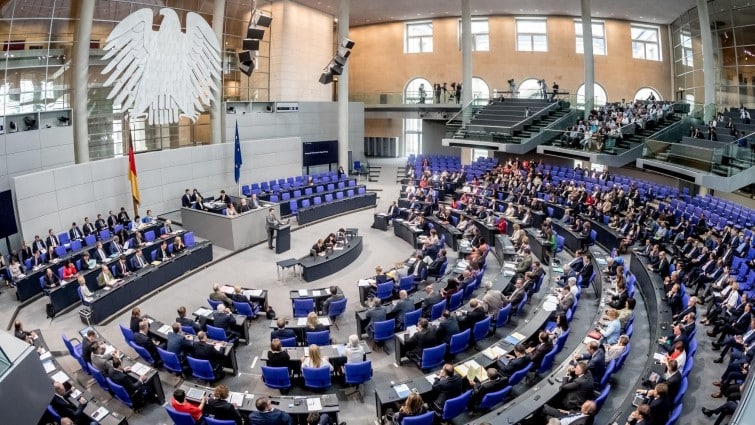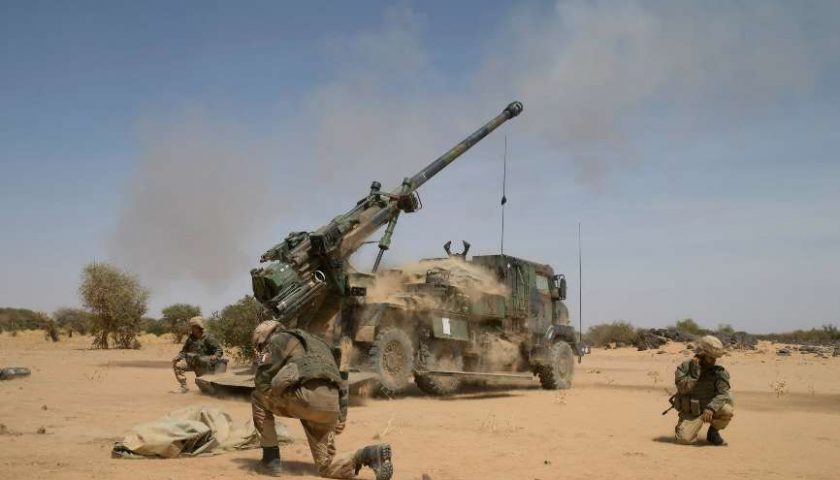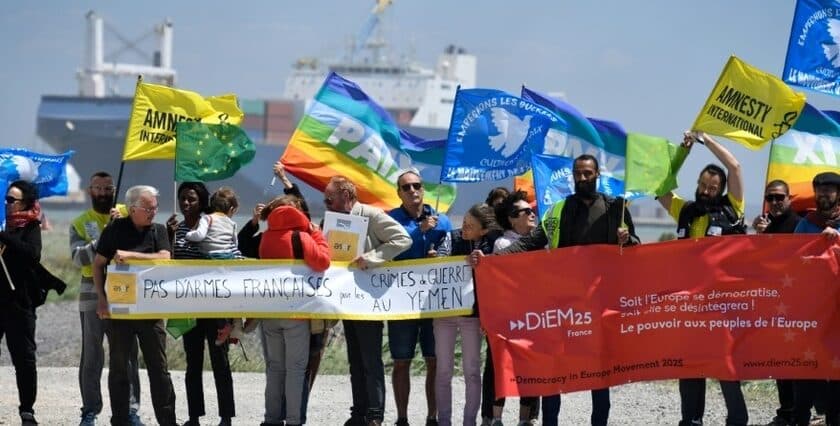A German court of justice issued a judgment 03 December 2019 which cancels the suspension decided by the German government on arms deliveries to Saudi Arabia. Started in October 2018the suspension decision had been formalized in March 2019. It must expire in March 2020. For the record, this decision was announced by Angela Merkel after the murder of Saudi journalist Jamal Khashoggi. It did not officially concern the conflict in Yemen, which prevented Germany from also having to put an embargo on deliveries to the United Arab Emirates, a member of the same coalition and an important direct customer for German industrialists. Germany had been able to use this suspension for block some French exports with German coins, which led the two states to negotiate an agreement, however, suspended at the whim of the Bundestag.
The German court ruled after a complaint by the industrialist Rheinmetall following the cancellation of the export license which concerned the transfer of 110 armored vehicles " Boxer Part of which had already been delivered before the suspension of exports. It appears that the decision is in the form and not the merits, the court having held that the German Government had failed to comply with the procedures relating to the suspension of a license, in particular which should allow the aggrieved compensation for economic loss. The government can appeal this decision.

It should be recalled that Rheinmetall exports some of the weapons that were directly identified by UN panel experts as having been used in strikes that may constitute serious violations of International Humanitarian Law (IHL).[1]. The German group, which enjoys significant German support in the Bundestag, continued to fuel the conflict in Yemen well after the Berlin decision, particularly via its factories in South Africa or Saudi Arabia, thus circumventing the problem. national.
This judgment is a first in the long debate which agitates the Western States on the subject of arms exports to Saudi Arabia, because it intervenes "against" current demands and for the benefit of an industrialist. For several years, Non-Governmental Organizations have tried to attack the validity of the arms export licenses of various Western countries, while pleading for a better submission of these export processes to the judgment of the courts and to the control of national representations. . Thus, in Italy, in the United Kingdom, in Belgium or in Canada legal actions have been taken, with varying degrees of success.
At the heart of the matter is the organization of arms control, specific to each country. The Member States of the European Union have engaged in the common position 944 / 2008 "Defining common rules governing the control of exports of military technology and equipment". But this is only a "Position" and not a "Regulation" or a "Directive", which implies at Community level that its application is non-binding and left to the discretion of each individual. Member state. In addition, the states of the European Union have ratified the Treaty on the Trade in Weapons, which sets out substantially similar export control rules (the European position demands - in addition - not to undermine the export security of other Member States). Again, the ATT is a treaty that empowers states, but without a mechanism of constraint.

In France, the prohibition regime applies by default: it is legally prohibited to produce or export weapons, but it is possible to obtain an exemption. For export, this exemption is issued in the form of a license by the Prime Minister, after consultation with the Interministerial Study Commission for the Export of War Materials. The CIEEMG gives an opinion which does not bind the government: the subject is considered as an "act of government", discretionary and without possible recourse on the part of the applicants. In France, manufacturers therefore do not have a “right” to a license, nor therefore a “right” to compensation in the event of refusal or cancellation.
The Ancile law firm, working with several NGOs, asked the Prime Minister in 2019 to suspend French export licenses to Saudi Arabia. Faced with the lack of response, he seized the administrative court which agreed to hear the case on the grounds that the "suspension" is probably not as discretionary as "the grant". The court, however, dismissed the NGOs, who appealed. The Administrative Court of Appeal estimated by order the 26 September that she did not have to know the subject. The NGOs thus provided the November 19 before the Council of State, who must make a judgment as to whether, like the granting of licenses, the suspension is also part of an act of government, inseparable from the conduct of France's international relations and therefore unable to contested by law or on the contrary that the cases constituting the suspension may be exhaustively enumerated and subject to an administrative process which may be subject to appeal.

Depending on the country, the authorization to export arms is more or less discretionary for the government or subject to judicial review. NGOs often campaign for the French system to be called into question, instead proposing a review of legality by the courts, in particular with regard to France's international commitments. However, the judgment rendered in favor of Rheinmetall illustrates one of the basic principles of the judicial system: when a process is submitted to the courts, rights are created for all the parties involved, including manufacturers. If by any chance such control were to be put in place in France, we would be moving towards the delimitation of a real “right to export”. In fact, as long as the license remains a derogation issued by the government, manufacturers have no “right” to the license, and consequently no recourse possible in the event of refusal by the government. French case law was moreover built on the judgments handed down by administrative courts against industrialists who attacked the State for license suspension and who refused to hear the cases.
In this area as in others, hell is paved with good intentions: if the process comes to be submitted to the courts for approval, it will not only be the NGOs that will come to court, but also the industrialists, with several reasons: some industrialists will want to force the State to issue them an export license in a country for which the government thinks that a sale of arms would harm the interests of France. Some manufacturers will come to ask for financial compensation in the event of license revocation, forcing the State to pay them public money when, for example, France applies a United Nations embargo following a conflict. Finally (especially) industrialists - French or foreign - could attack the licenses of their competitors to promote their own exports. The government should manage the risks induced by the conduct of international relations before the courts: would the government support the vote of an embargo at the United Nations Security Council if it knows that industrialists could attack it in the event of suspension? licenses?

Will collective security have progressed? Will arms trafficking be reduced? The export of arms is an inherently political subject and it must undoubtedly remain so. By wanting too much to judicialize all decisions, we create paradoxes, which lead to arming private actors against public power and, in the end, to reduce the field of competences of governments resulting from a democratic system for the benefit of groups. pressure and economic actors. If some want the state to change its practices, the fight should be political. The alternative, which consists in bringing the judge into the conduct of international relations, is both perilous and counterproductive, including for human rights.
[1] "Letter dated 25 January 2019 from the Panel of Experts on Yemen addressed to the President of the Security Council" https://undocs.org/en/S/2019/83 - “The Panel found that the mortar used for that attack had characteristics of those produced either by Rheinmetall in Germany by South African subsidiary Rheinmetall Denel Ammunition, which reportedly also produces mortar shells in a factory in Saudi Arabia ”. To date, no French weapon has been identified in areas where possible serious violations of IHL have occurred.

